-
Doctors
-
Specialities & Treatments
Centre of Excellence
Specialties
Treatments and Procedures
Hospitals & Directions HyderabadCARE Hospitals, Banjara Hills CARE Outpatient Centre, Banjara Hills CARE Hospitals, HITEC City CARE Hospitals, Nampally Gurunanak CARE Hospitals, Musheerabad CARE Hospitals Outpatient Centre, HITEC City CARE Hospitals, Malakpet
HyderabadCARE Hospitals, Banjara Hills CARE Outpatient Centre, Banjara Hills CARE Hospitals, HITEC City CARE Hospitals, Nampally Gurunanak CARE Hospitals, Musheerabad CARE Hospitals Outpatient Centre, HITEC City CARE Hospitals, Malakpet Raipur
Raipur
 Bhubaneswar
Bhubaneswar Visakhapatnam
Visakhapatnam
 Nagpur
Nagpur
 Indore
Indore
 Chh. Sambhajinagar
Chh. SambhajinagarClinics & Medical Centers
Book an AppointmentContact Us
Online Lab Reports
Book an Appointment
Consult Super-Specialist Doctors at CARE Hospitals

Venous Tumours
Venous Tumours
Venous Tumours
Venous tumours are tumours that may occur on or inside a vein. The tumours in the veins may spread from other tumours that may start in other parts of the body. Surgical removal of venous tumours is the best treatment option to prevent blockage of blood flow and spreading to other parts of the body. The doctors at the CARE Hospitals have expertise in vascular care and they can treat the most complex of such disorders. The vascular tumours can be benign or malignant. The vascular tumour may be highly vascularized which means receiving a high degree of blood supply or it may be poorly vascularized which means receiving poor blood supply.
Types of Venous Tumours
A venous tumour may grow due to the proliferation of endothelial cells. There are different types of venous tumours and some are given below:
- Benign: Benign venous tumours are not dangerous and most of them disappear after a few years. They occur due to the proliferation of endothelial cells. Haemangiomas are the most common type of benign venous tumour. They can occur anywhere in the body but most commonly occur in the skin of the head, neck, trunk, and extremities.
- Borderline: Borderline venous tumours are locally destructive tumours. They can infiltrate underlying muscles and fat. These tumours are found in infants and are visible as red or purple expanding mass of soft tissue. They can be dangerous and should be treated as quickly as possible.
- Malignant: Malignant venous tumours either originate from the vein wall compressing the vein or grow inside the vein as the tumour. Malignant tumours of the inferior vena cava are the most common.
Causes of Venous Tumours
The cause of venous tumours is not known. They may be inherited and may run in families. This can be passed only if one parent has the gene. Studies suggest that venous tumours may occur due to the proliferation of endothelial cells that occur from the disrupted placental tissue embedded in the foetal soft tissues.
Symptoms of Venous Tumours
The majority of venous tumours are not visible at the time of birth. They appear a few weeks after birth when the proliferation of endothelial cells starts. The main symptoms of venous tumours include the following:
- They may start as faint, red birthmarks.
- They grow quickly in the first few months and they reduce in size and fade in colour over time.
Diagnosis of Venous Tumours
The correct diagnosis of any kind of venous anomaly is important for proper treatment. The doctor will first do a physical examination to determine the condition. He will also recommend certain imaging tests to confirm the diagnosis of venous tumours and determine their location.
- Ultrasound: An ultrasound may be recommended to see the growth of unwanted cells in a particular part or organ of the body.
- Computed tomography (CT) scan: A CT scan may be done to create an image of your blood vessels and heart and know the location of venous tumours.
- Fluoroscopy: It is an imaging technique in which a beam of X-ray is passed through the body to create moving images of internal organs. It helps in detecting venous tumours located anywhere in the body.
- Magnetic resonance imaging (MRI): In magnetic resonance imaging radio waves, magnets, and computer technology are combined to form images of blood vessels and the heart and help in the proper diagnosis of the location of venous tumours in your body.
Treatment for Venous Tumours
Treatment of venous tumours depends on the symptoms, age, and general health of your child. Treatment also depends on the size and location of the tumour and the severity of the condition. Small venous tumours shrink on their own and do not require any treatment. In some cases, medications such as steroids and minimally invasive surgical procedures may be used to improve blood flow. Steroids may produce other side effects such as irritability, gastric problems, etc.
- Embolization: This method is used to close the blood vessel that has a problem
- Surgery is recommended to remove the tumour if possible.
- Chemotherapy and radiation therapy may be recommended along with other treatments
- Laser therapy: Laser therapy may be used to remove the tumour from the blood vessel.
Treatment of venous tumours requires a combination of treatments that may work together to give relief from the symptoms and prevent further complications.
Complications of Venous Tumours
Venous tumours can be life-threatening if they are not treated on time and if they are large. If a venous tumour is affecting airways or a large organ, then it could be dangerous and fatal. If there is uncontrollable bleeding from a venous tumour, it could lead to death. Other complications of venous tumours include tissue destruction, distortion, and obstruction.
It can also cause physical problems depending on its location. A child with a venous tumour may have a problem seeing or moving parts of the body.
Conclusion
Venous tumours are congenital and mostly benign that do not require any treatment. The real cause of venous tumours is not known and most of them are believed to occur due to genetic reasons. Venous tumours may be benign, borderline, or malignant depending on the extent of tissue involved. The venous tumour may look like a red spot on the skin. The doctor will do a physical examination and recommend certain imaging tests to diagnose venous tumours. It is important to determine the severity of the problem for getting the best treatment plan.
Our Doctors
-

Dr. Tarun Gandhi
MS, FVES
Vascular & Endovascular Surgery
View More -

Dr. P C Gupta
MBBS, MS, FICA, FIVS (Japan)
Vascular & Endovascular Surgery
View More -
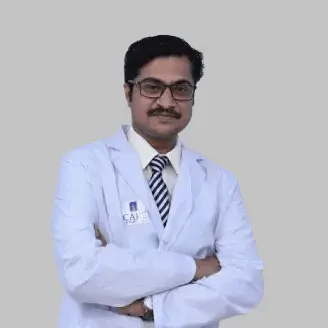
Dr. Ashish N Badkhal
MBBS, MS, MCh
Vascular Surgery
View More -
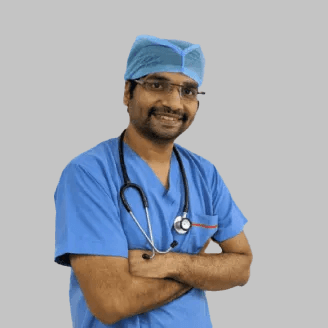
Dr. Ashok Reddy Somu
MBBS, MD, FVIR
Vascular & Interventional Radiology
View More -
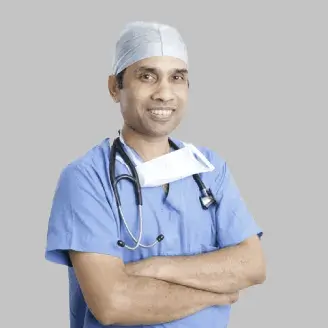
Dr. B. Pradeep
MBBS, MD, DNB, FRCR CCT (UK)
Vascular & Interventional Radiology
View More -
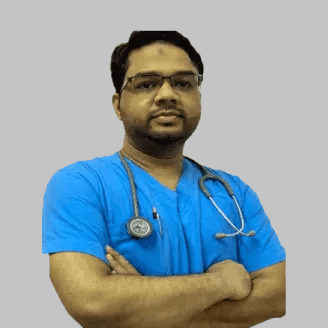
Dr. Mustafa Razi
MBBS, MD
Vascular & Interventional Radiology
View More -
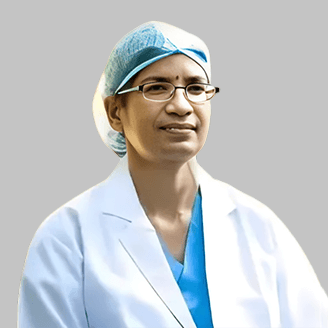
Dr. N. Madhavilatha
MBBS, MS, PDCC
Vascular & Endovascular Surgery
View More -
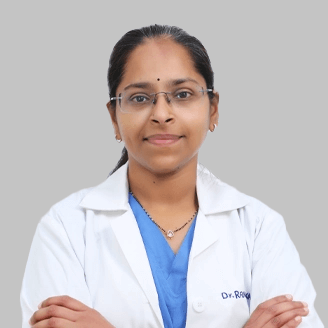
Dr. Radhika Malireddy
MBBS, DNB (General Surgery), DrNB (Plastic & Reconstructive Surgery), Post-Doctoral Fellowship in Diabetic Foot Surgery
Vascular & Endovascular Surgery
View More -
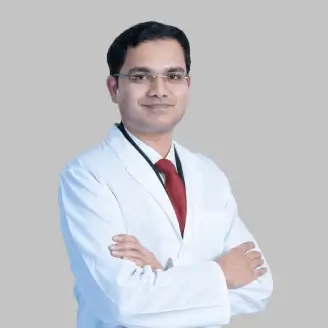
Dr. Rahul Agarwal
MBBS, DNB (General Surgery), FMAS, DrNB (Vasc. Surg)
Vascular & Endovascular Surgery
View More -
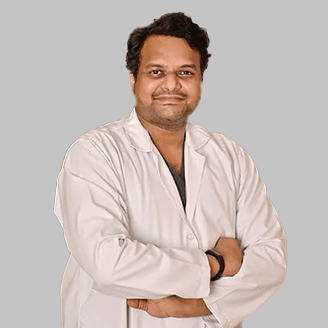
Dr. Rajesh Poosarla
MBBS, MD, DNB, DM (Gold Medalist), EBIR, FIBI, MBA (HA)
Interventional Radiology
View More -
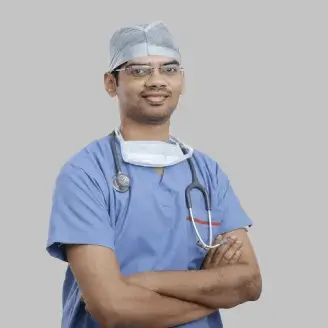
Dr. S. Chainulu
MBBS, DNB (Radio-Diagnosis)
Vascular & Interventional Radiology
View More -
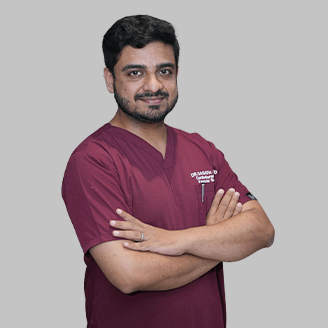
Dr. Sadath Ahmed
MBBS, DrNB (CTVS)
Cardiac Surgery, Vascular Surgery
View More -
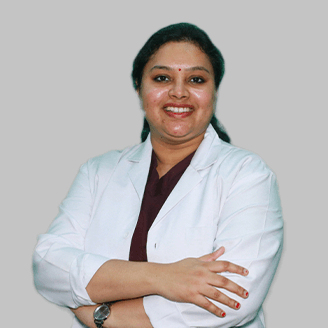
Dr. Sailaja Vasireddy
MBBS, DrNB (CTVS)
Cardiac Surgery, Vascular Surgery
View More -
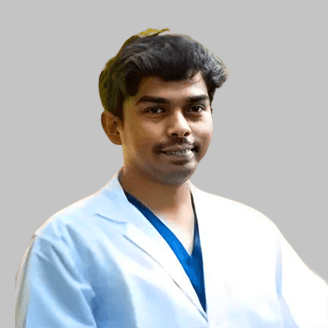
Dr. Santhosh Reddy K
MBBS, MD
Radiology
View More -
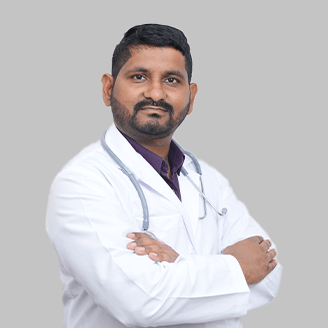
Dr. Sudheer Gandrakota
MBBS, DNB, CTVS
Cardiac Surgery, Vascular Surgery
View More -
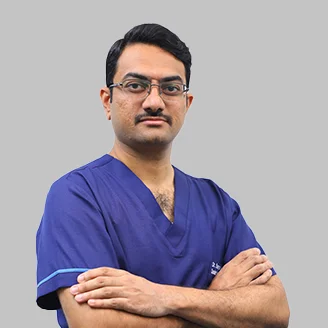
Dr. Surya Kiran Indukuri
MBBS, MS (General Surgery), DrNB (Vascular & Endovascular Surgery)
Vascular & Endovascular Surgery
View More -

Dr. V. Apoorva
MBBS, MS (General Surgery), DrNB Vascular surgery
Vascular & Endovascular Surgery
View More -
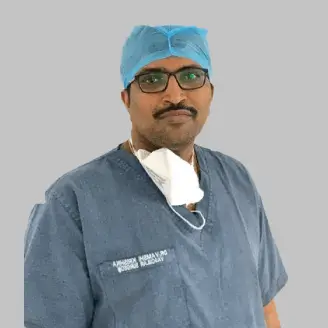
Dr. Vamsi Krishna Yerramsetty
MBBS, DNB, FIVS
Vascular & Endovascular Surgery
View More -
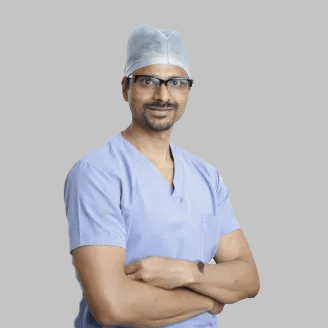
Dr. Venugopal Kulkarni
MBBS, MS, MRCS, FRCS
Vascular & Endovascular Surgery
View More -

Dr. Vivek Lanje
MBBS, DNB (General Surgery), Mch (Cardiovascular & Thoracic Surgery)
Vascular Surgery
View More
Frequently Asked Questions
Couldn’t find what you were looking for?
Need any help? Get a Call Back.

Still Have a Question?

